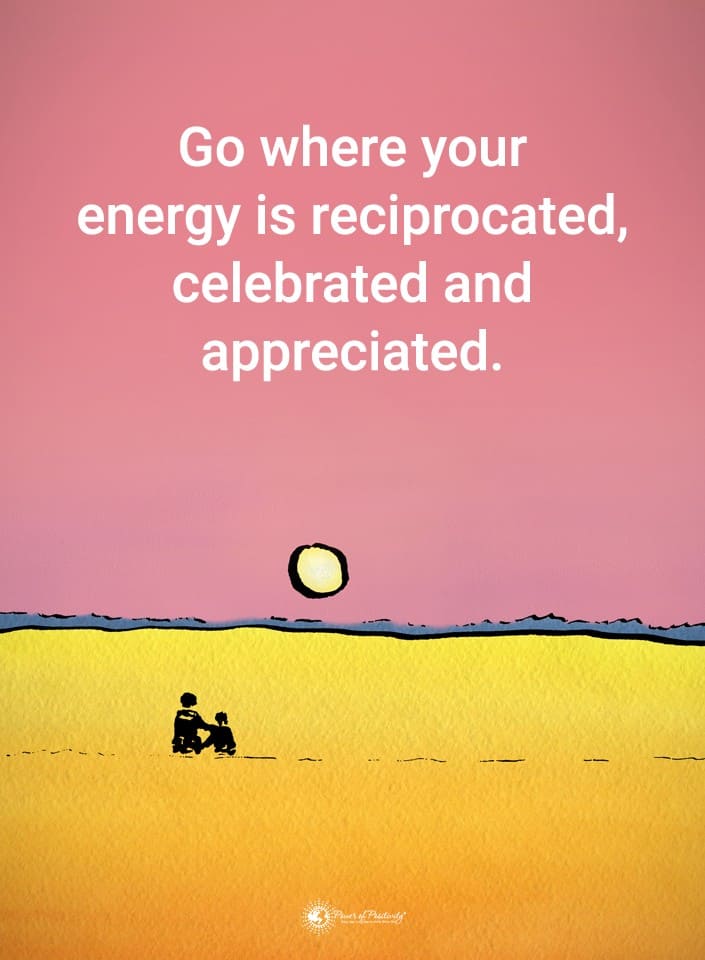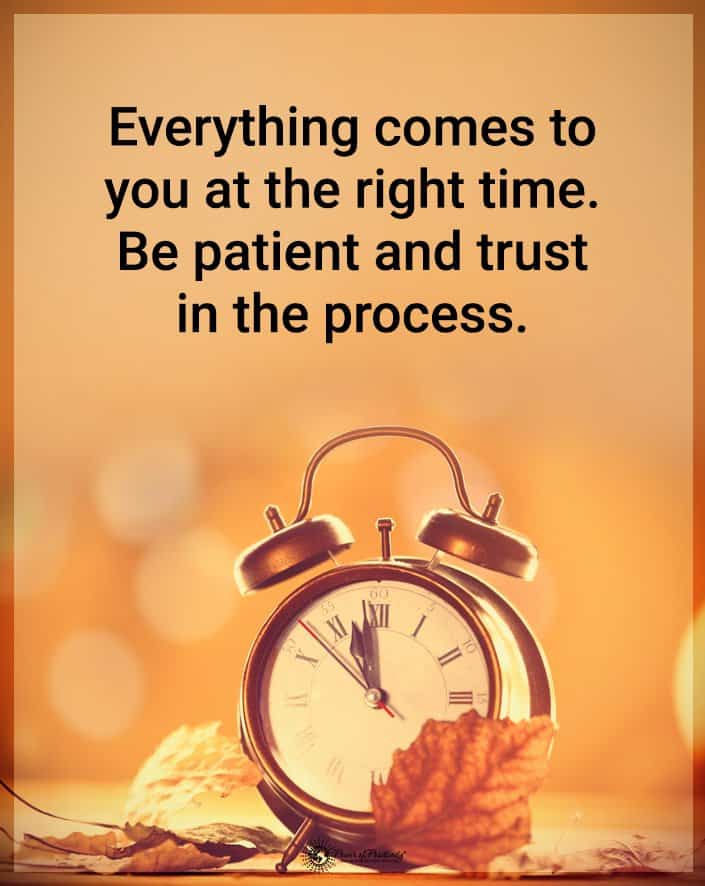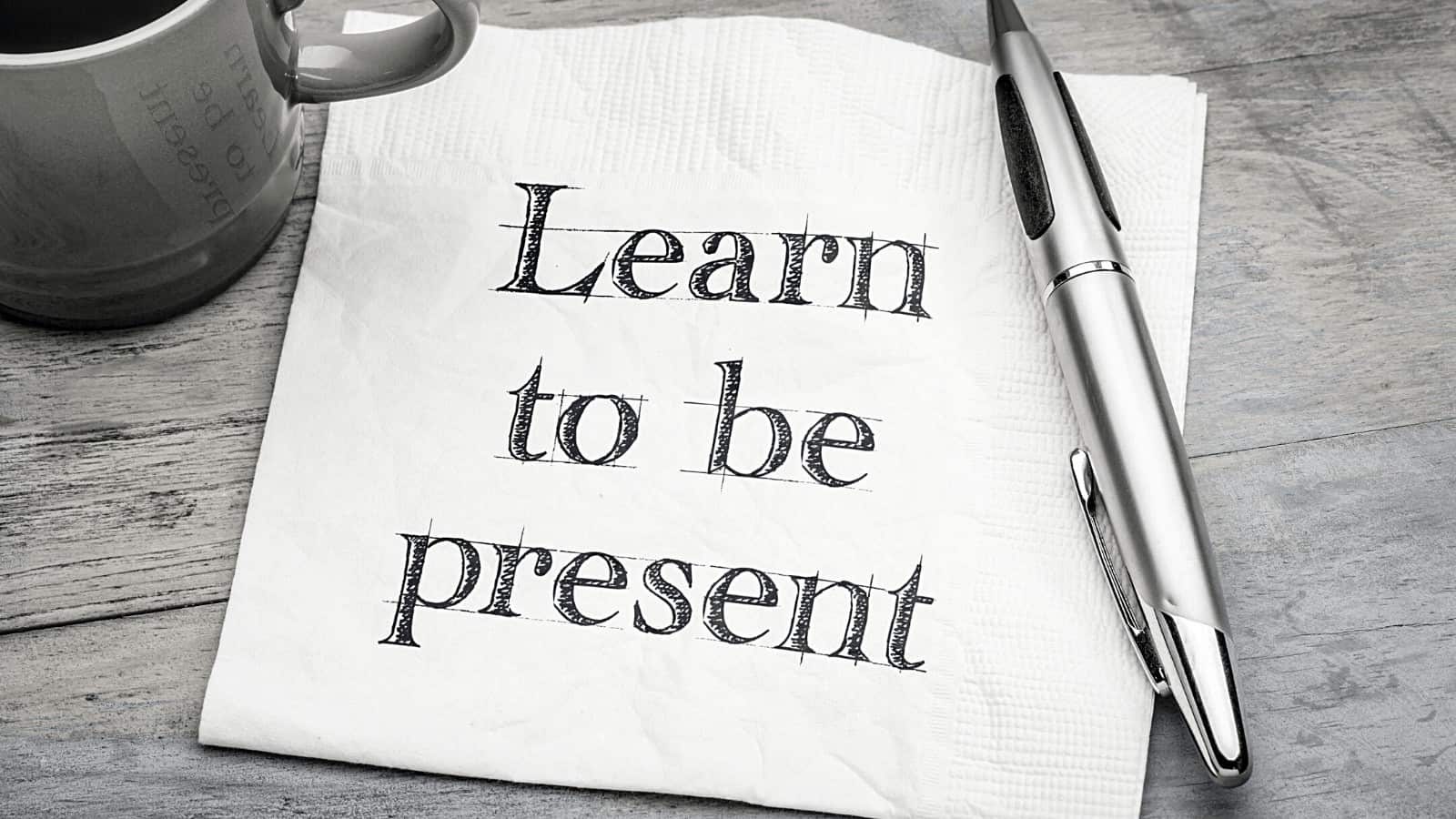You go to work every day, take care of your home, handle your self-care, and make time for the relationships in your life. Have you ever stopped to think about how much you miss because your body is on autopilot? When you’re not present in the moment, you miss so many things that could enhance your life and make you more productive.
You’re driving down the street, taking your daughter to her dance recital. You have the radio going, your daughter is talking the entire way, and you’re contemplating what you’re going to make for dinner. All the chaos feels routine and comfortable to you because you multi-task so often.
Sure, you hear your daughter talking about her day and her life, but you truly don’t grasp what she’s saying. You make several twists and turns as you head down the busy streets, but you clearly have no idea about the hustle and bustle around you, as you have zoned out. Does this sound like a familiar scenario?
People are so busy living their lives that they don’t even pay attention to half of the things around them. Consider another scenario. You work in an office and have significant responsibilities on your shoulders.
Your day is quite regimented. You get up at 7 am, shower at 7:15 am, and leave your home by 7:45 am. You don’t remember a thing on the way to work as you’re engrossed in the radio and incoming text messages. When you get to work, you make it to your cubicle to find that you’re still half-asleep.
For much of the morning, you fight sleep and feel as if you could take a nap. The first half of your day is a blur, and you make it to lunch. You can’t remember much about the morning because you checked out about 15 minutes after you got to work.
Sure, you did the reports you needed to do and made a few phone calls, but you conducted most of these tasks thanks to your brain’s auto recall function. How can you be an effective employee when your body is at the office, but your mind has left the building. Sadly, employers want people who not only show up to work but who mentally prepare for the challenges of the day.
Understanding Mindfulness
 How many times are you guilty of not paying attention to what’s going on around you? Now be honest, how many times has this cost you dearly? What if your boss gave you specific instructions for a big meeting you needed to attend, but you only caught half of what he said?
How many times are you guilty of not paying attention to what’s going on around you? Now be honest, how many times has this cost you dearly? What if your boss gave you specific instructions for a big meeting you needed to attend, but you only caught half of what he said?
Being present in the moment is also called mindfulness. It’s a term that every self-help expert uses these days, sometimes without further explanation. To be mindful means to be present and stop going into autopilot mode. You were so busy when you flew out the door this morning that you missed that your rose bush has new buds on it.
If you can miss a spring rose awakening from a long winter’s nap, then how much more have you let escape your attention. Mindfulness teaches you to focus on the world around you and to live in the present. Therapists often use this technique in dialectal therapy for those who suffer from severe anxiety as it helps them find grounding.
Berkley University describes it as being aware of the things going on around you moment-by-moment. Rather than thinking about the future or your past, you focus on the here and now. It’s a concept that can change your life.
How Mindfulness Helps Your Productivity
Most employees feel that when their employer talks about productivity that they want more from them. Increasing your efficiency has everything to do with changing how you work. If your mind is going in numerous directions, then you’re not going to give 100 percent to your job.
A recent article was published in the Huffington Post regarding the loss of productivity and how much it costs employers. The average person spends about 20% of their life on social media today. Sadly, they spend more hours than ever at a job. Employees don’t perform well when they:
- Feel bored at work
- Dislike their job
- Feel dissatisfied with career goals
- Don’t work in a positive environment.
Learning to be current won’t make you like your job anymore, but it can help you reconnect with what’s going on around you. Here are some ways that it can help with your productivity.
1. Better Decision-Making Abilities
When your brain is on autopilot, you don’t make the best choices. How many accidents on the freeway arise from people who aren’t really paying attention? When you’re present and have all your thoughts geared towards your job, you can make better decisions.
Depending on your career, each job has specific things that require decision-making abilities. Even something as small as whether to have employees stay over for a meeting requires careful planning. When your 100 percent focus on the tasks at hand, you can make better choices for yourself and the company.
 2. Moving the Needle
2. Moving the Needle
Are there days when you’re busy and look productive but don’t get a lot done? This is a common issue when people are stressed. Did you know that being present can help with tension and strain? Please make a list of all the tasks that you need to accomplish that day, and don’t multitask your way through it.
For years, employers praised their multi-taskers for wearing many hats and handling enormous workloads. However, some recent studies show that multitasking is not good for your brain, and it can cause you to be less productive. When you focus on one thing, then you devote all your attention to that item.
However, when you have 3-4 irons in the fire, then you can’t really give any of those things your undivided attention. According to the Cleveland Clinic, the brain isn’t made to handle so many commands at once. A study conducted by Springer found that only 2.5 percent of the population can multitask effectively.
3. Stay Fresh and On Top of Your Game
How can you be on top of your game when you carry so much stress and anxiety? Did you know that if you reprogram your brain to mindful thinking that you can change your immune function in just two months? A study conducted by the University of Wisconsin showed that this method is amazingly effective in increasing your stress resilience.
Have you ever been burnt out? When you get to this point, you are hardly present, nor do you really care about the quality of work you produce. Just getting to work and making it through the day may seem like an arduous task, let alone getting any real work accomplished.
4. Gain Clarity on What Matters Most
A wandering, distracted mind can’t decide what matters most and prioritize their day. You may get sidetracked answering an email and leave the task you were already finishing undone. When you practice mindfulness, you can quickly prioritize your schedule and know what needs to be accomplished today and what can be put off tomorrow.
Many folks falsely label people as procrastinators. It’s not always that a person is putting off what needs to be done. Instead, they cannot focus on the tasks to get them finished.
 Final Thoughts on Being Present in The Moment
Final Thoughts on Being Present in The Moment
Do you desire significantly greater productivity on your job and in your life? How long have the gutters needed to be cleaned, but they still sit with leaves piled in them from last winter? Mindfulness can affect every area of your life, and it can change you for the better.
Being present will open your eyes to the world around you, help you to reduce stress levels, enhance your focus, and allow you to be more productive at work. No one wants a burned out or overwhelmed employee. Employers lose significant money on productivity. So many now incorporate mindfulness training into corporate cultures around the globe.
The next time you’re sitting in your office and feeling stressed, you should try a simple grounding exercise. Identify five things in the area that you might usually overlook.
Here are a few examples:
- Recognize the color of paint in the office.
- Pay attention to the furniture and any nicks or imperfections.
- Take your shoes off and feel the carpet or flooring on your feet.
- Notice any smells such as cleaning materials, candles, or even the scent of fresh air.
- Remind yourself where you are and what you’re there to accomplish.
Now, another trick you can do when you feel overwhelmed is to meditate. You can sit in your office and do a 5–10-minute meditation. It will help to purge negativity from your mind and give you the mental strength you need to keep going the rest of the day.

















